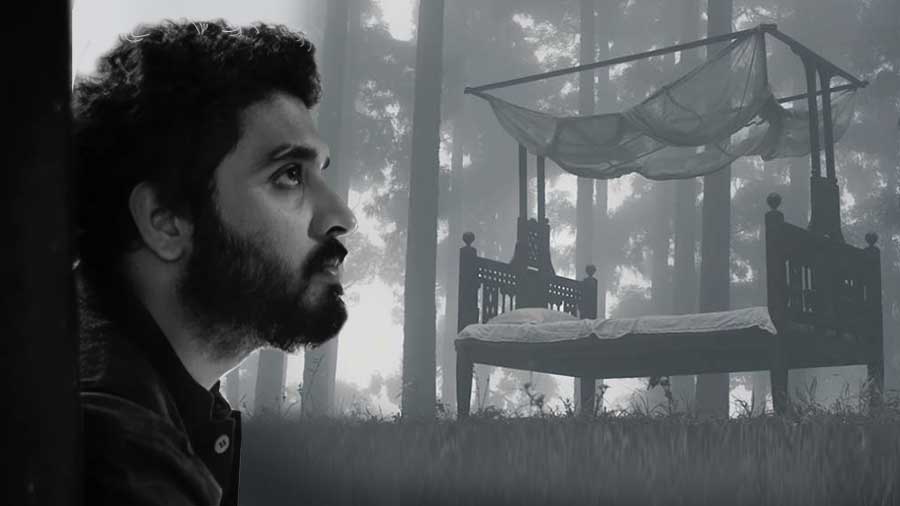Sonder. It means the realisation that each random passerby is living a life as vivid and complex as your own. I chanced upon this word in John Koenig’s The Dictionary of Obscure Sorrows. Calcutta, as any city, is about the people, and every now and then I meet someone I absolutely have to know more about… I want to know what they’re doing at home, the conversations they’ll have, what they might eat for dinner. Calcutta frequently induces in me a feeling of sonder, not least because my childhood experiences in this city have been greatly varied.
I grew up in south Calcutta, in an old red-bricked house which is often the setting of my dreams. We’d light a bonfire with dry leaves on winter nights and sometimes I’d dig up a corner of the garden. I spent a lot of time in that garden, climbing trees with my friends or playing badminton. I remember the stillness of the afternoons, punctured by the sounds of hawkers, I remember clambering up to the terrace in the evenings to watch the world unfold around me. It’s amazing how you could tell the time of day by the sounds from a neighbour's house. In the absence of digital entertainment when I was growing up, there was a sense of discovery. These days, with everything a swipe away – food, romance, sex – all the fun and mystery is gone.
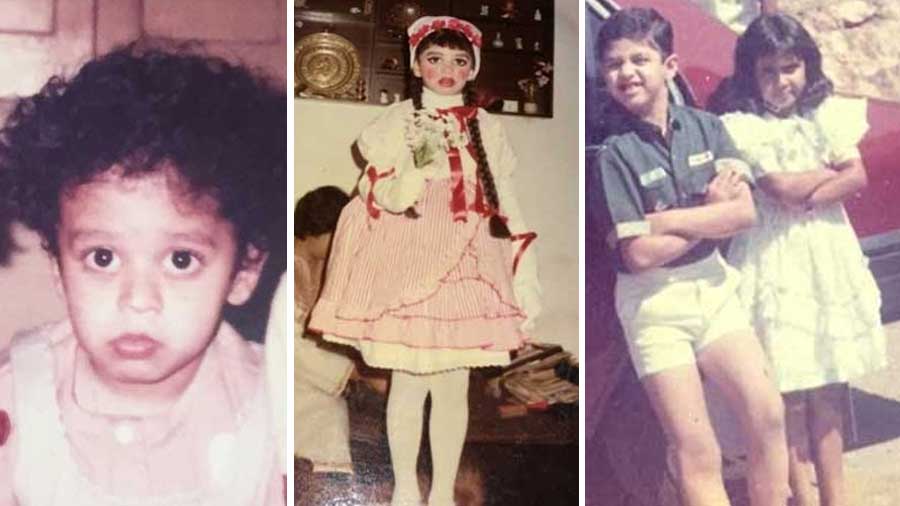
Stills from Aditya Vikram Sengupta’s childhood
I explored this slow discovery of love in my first movie, Asha Jaoar Majhe, which for me is a very nostalgic piece of work. It takes me back to my parents, who used to be pen pals before they got married. I’ve never witnessed them even holding hands, but I’ve seen love being expressed in other subtle ways, transmitted through food, through mostly inanimate things, through the little things that they did for each other. The essence of this is translated into the movie, where the couple meets only for a single dream sequence.
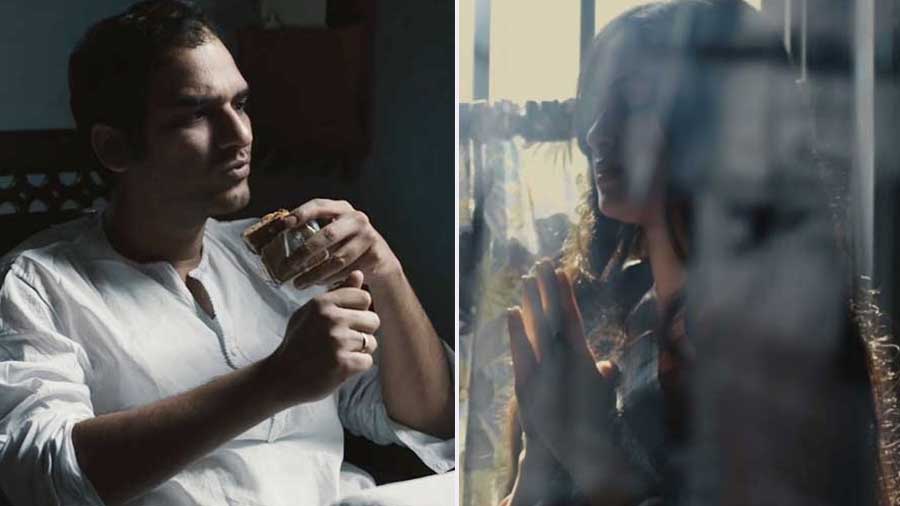
The protagonists in 'Asha Jaoar Majhe' discover each other through the monotony of daily life
Dreams have always been an integral part of my life. We sleep for 24 years if we live for a 100 years, which makes it as important as our waking life. I’m lucky to be dreaming when I’m asleep. When we dream, we have experiences we are unable to express, acknowledge, or sometimes even accept. Often the feelings that bubble forth are difficult to articulate. I have often woken up with an inexplicable sense of sadness or joy and it’s important for me to be able to tap into that emotion and understand why it’s happening. Which explains why my second movie, Jonaki, plays out like a long dream sequence or a children’s storybook.
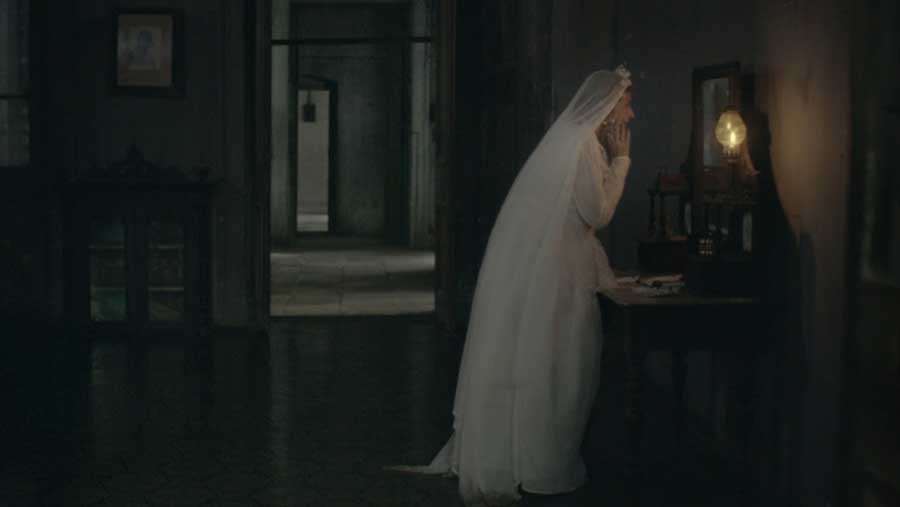
A scene from 'Jonaki'
When I was born, Nanny (which is what I call my maternal grandmother) came to see me in the hospital, and never went back to her home. She moved in to live with us and became an integral part of my boyhood. Jonaki is loosely based on all the stories that my grandmother told me about her own childhood and how everything changed very quickly. I’ve watched her tearing up the photographs from her youth because she was in so much pain about the past. I imagined her house as one sees it in Jonaki, dark and crumbling, because I never had a reference to a new house. Nanny used to tell me about an opulent childhood, about ballroom dancing and handing out one-rupee notes to her friends in school. But her father died before she turned ten and everything changed. Her mother started working, the children’s education went for a toss and Nanny was married at the age of 16 to my grandfather – a pragmatic man steeped in his work. She never found the love she yearned for but with Nanny, I discovered a little bit about life. Wherever Nanny went, I went with her.
I’ve explored all corners of the city with her, holding her hand down VIP Road, visiting the Loknath Baba temple, tripping down Boulevard where the Gariahat flyover now is. We took a lot of buses and trams to travel across the city, meeting all kinds of people. She introduced me to magic and for the longest time the magician who would visit us at home was my guru; I was convinced he was everything I wanted to be. He disappeared one day and I insisted that Nanny take me to the address in Salt Lake where I thought he lived. We never found him there, but one day I saw him again, selling tea outside that posh colony of apartments. I was heartbroken.
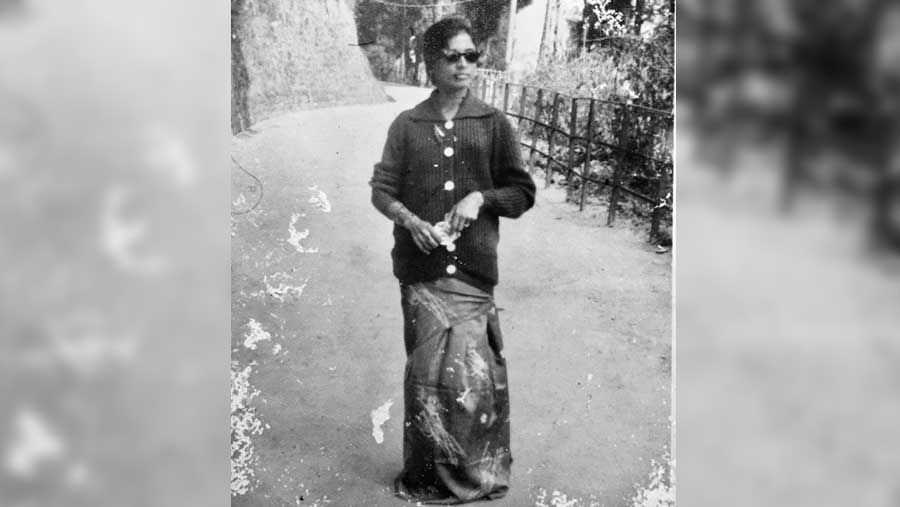
Nanny, whose stories fuelled Aditya’s young mind
My perception of Calcutta has never been linear; alongside delving into the city with my grandmother, I was attending a Jesuit school with a diverse set of friends, playing Bach at The Calcutta School of Music, Bollywood songs at the Puja pandal, and classic rock at Someplace Else (our band was called Soundcheck and later Supersonics). I’ve always been in the company of people from varied backgrounds, which is the most interesting thing about life here (or perhaps life anywhere, really) and I feel a great sense of affiliation with people in general.
My latest film, Once Upon a Time in Calcutta, plumbs a wide cross-section of people and explores an important period in the history of the city. I use the word prematurely, for it is not “history” yet. But it will be; the present turns into the past so rapidly that we find ourselves thinking back wistfully, in no time at all, at how things used to be. The movie navigates the political climate of the city, the social milieu, and how life has been changing here. For instance, I feel very deeply this sense of people losing their ability to really discover life. With the technology boom and readily-available internet, people have lost their connection with immediate surroundings. Rapid growth and simultaneous destruction have swept through this city. But what the complex fabric of the film explores is the city itself, and what is a city if not its people and the world they embody.
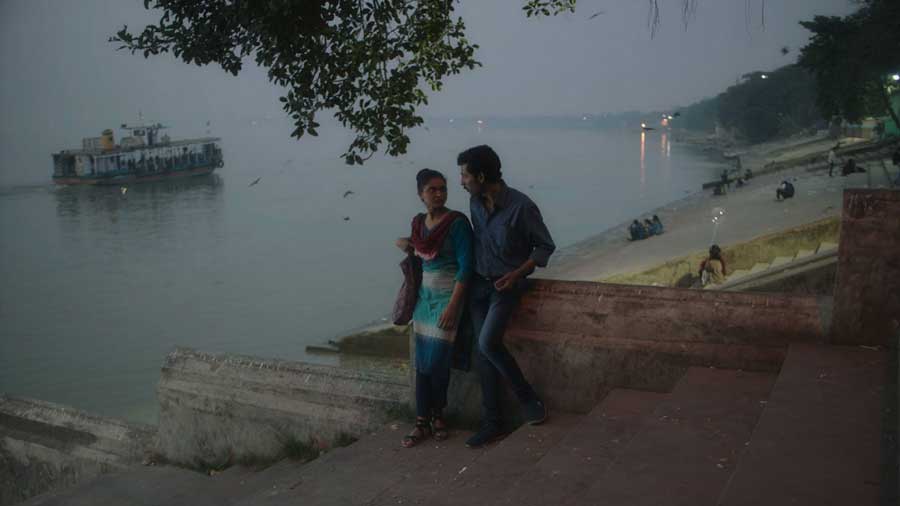
A scene from 'Once Upon a Time in Calcutta', which premiered in Venice at the 78th Venice International Film Festival on September 7

It feels like homecoming because the Venice film festival discovered me and validated my artistic expression. It’s also special to be here in 2021, a year marked by Satyajit Ray’s centennial birthday.
Aditya Vikram Sengupta
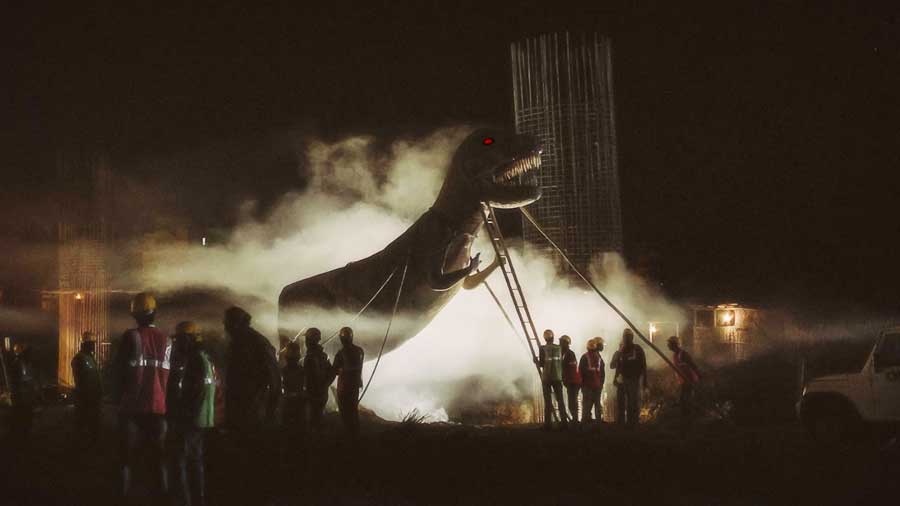
A dinosaur in Kolkata? We’ll have to find out more when we watch Sengupta’s 'Once Upon A Time in Calcutta'
For me, making films is an expression of how I absorb the world around me, it is a concrete image of my perception of people and places. And for me, Calcutta stands for nostalgia. Simply living here makes me wistful for a time gone by.
Aditya Vikram Sengupta’s debut film, Asha Jaoar Majhe or Labour of Love premiered at the Venice Film Festival 2014, Giornate Degli Autori, where it won the Fedeora for Best Film by a Debut Director. It has, since, featured at over 70 international film festivals and won 13 international awards. Sengupta’s second feature Jonaki was officially selected to have its world premier in the Bright Future section of the International Film Festival of Rotterdam 2018. His latest release, Once Upon A Time in Calcutta premiered at the 78th Venice Film Festival on September 7, 2021
